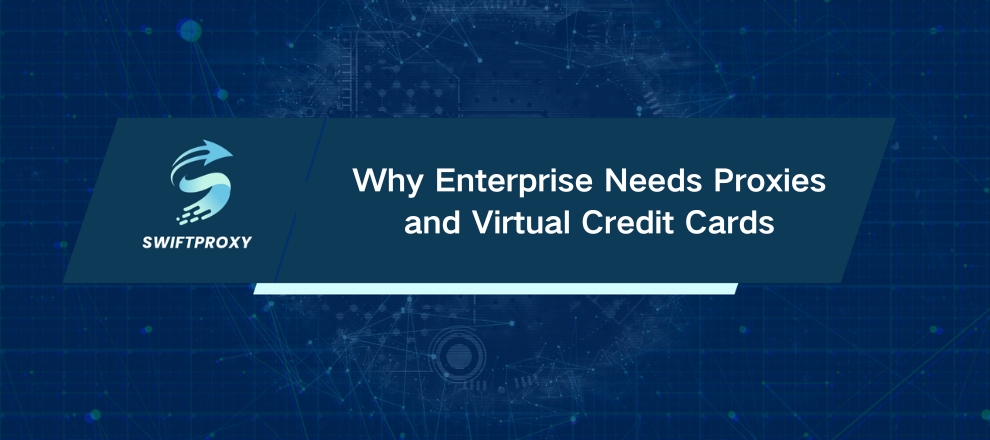Why Enterprise Needs Proxies and Virtual Credit Cards

Every click leaves a trail. Every transaction tells a story. And modern platforms? They're reading it all. From ad networks to SaaS tools, systems now analyze your IP, behavior, and billing data in tandem. One slip, one repeated card, and you're flagged.
If you're running cross-region campaigns, global dropshipping, or paying for international services, these layers of scrutiny aren't just annoying—they can block growth.
Proxies mask your IP. That's a start. But if you're still using the same credit card across accounts, you're leaving breadcrumbs that platforms can follow. That's where virtual credit cards (VCCs) come in. Combine them with proxies, and you get a privacy shield that lets your business operate across borders without exposing sensitive financial data or tripping alarms.
Why Virtual Credit Cards Matter
Reuse the same card, billing address, or issuing bank, and detection systems start connecting dots. That financial trail? It's what often takes enterprise operations down.
VCCs give each workflow a distinct financial identity. Sign up with a provider like VMCard, fund your main account, and generate as many cards as you need. Each card comes with its own number, CVV, expiration, issuing BIN, and often even merchant restrictions.
Here's what your team gains:
Keep Banking Details Private
One card across multiple accounts = one point of failure. Flag one account, and the rest could fall. VCCs silo your billing details. Each account stays separate. No cross-linking, no risk.
Unique Card Per Transaction
Paying multiple vendors? Generate a unique card for each. Control who gets paid, how much, and when. It's clean, trackable, and purpose-driven.
Easy Replacement if Compromised
Data breaches are rising. With VCCs, a compromised card is just one card. Cancel or replace it. Your main bank account? Safe. And generating a new card? Instant.
VCCs bring structure, reduce risk, and give your payment stack order. But alone, they aren't enough. To fully protect operations, combine them with proxies.
Using Proxies and Virtual Credit Cards to Stay Private
VCCs keep financial trails clean. But platforms track more than cards. They log:
IP origin, ASN, geolocation
Canvas, WebGL, and language fingerprints
Device hardware signals
Click cadence and scroll behavior
Your IP is the first handshake. One hundred VCCs with the same IP? Still risky.
Take a media buyer managing dozens of Facebook ad accounts. They might generate separate VCCs—but login from a single IP? Meta groups them and kills the stack. That's where proxies transform the game.
With proxy website, you can generate residential proxies, then assign each account a unique IP. One card. One IP. One account. No overlaps.
Drawbacks and Best Practices
Pairing VCCs with proxies solves ~90% of tracking problems. But scale brings new challenges. Even clean cards and fresh IPs fail if your browser fingerprint is identical.
Use antidetect browsers to simulate a unique environment for each login. Control every signal that could give you away.
Free or low-quality proxies often get flagged, and cheap VCCs can leak metadata. To maintain reliability, rely on trusted providers such as Swiftproxy for clean IPs and VMCard for isolated, purpose-specific cards.
Final Thoughts
Operational privacy isn't a single tool—it's layers. Proxies protect your network. VCCs protect your financial identity. Together, they give you control, reduce risk, and let your business scale without fear of being flagged.

















































